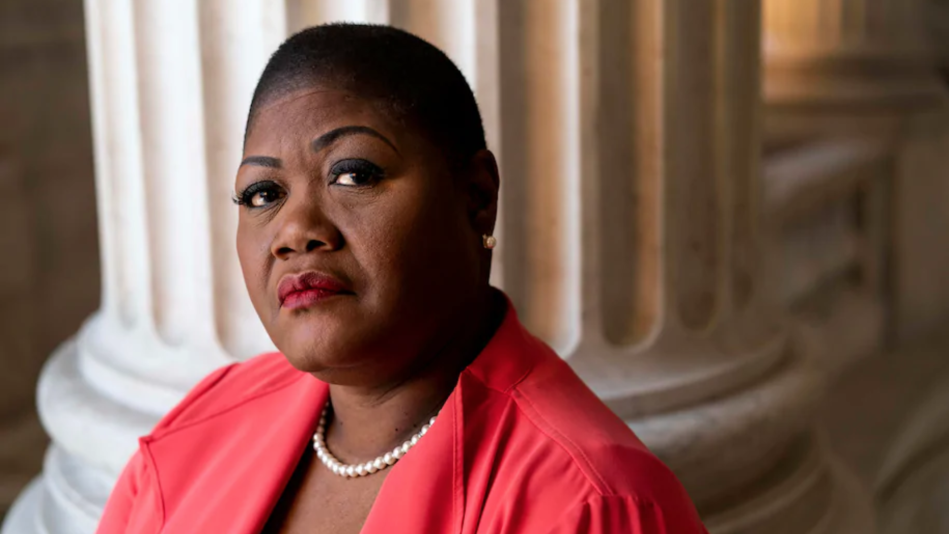
Melanie L. Campbell: What I Learned On My COVID19 Survivor Journey
There is Implicit Racial Bias in the Healthcare System That Must Change.
The following Op-Ed was written by Melanie Campbell, President and CEO of the National Coalition on Black Civic Participation, in response to "Queen Sugar." Currently airing Tuesday nights on OWN, the critically acclaimed drama series from creator Ava DuVernay remains rooted in real-life issues. This season, viewers witness the events throughout 2020 through the lens of the Bordelon family, including the depiction and impact of COVID-19 on their community and family.
The Black community's mistrust of medical professionals is one that is deeply rooted, well-earned, and dating back centuries. But now, in the midst of a global pandemic that is disproportionately killing Black people, we must come together as a nation—not forgetting our past—but learning from it. Using these lessons, we can begin to build back trust and confidence, calling upon trusted leaders in the Black community as voices to educate and empower, including messaging about the safety and effectiveness of a COVID-19 vaccine. Health equity starts with access.
As a COVID-19 survivor, I know first hand there is implicit bias and inequities that Black patients experience in the healthcare system. I also know that healthcare workers are laying their lives on the line to treat COVID-19 patients every day. But, what I experienced as a COVID-19 hospital patient reflects both the inequities Black patients experience in the healthcare system and the heroism of the doctors, nurses, nurse aids, physical therapists, maintenance workers, and others, who are fighting to save lives.
On September 9, 2020, I was diagnosed with COVID-19 that included an acute case of pneumonia. The initial interaction with the hospital was a good one. I checked in to the hospital overnight for observation, but the next day, I was told I was stable enough to go home and was given instructions to take over the counter Tylenol and Mucinex. So that is when my antennas went up and I asked if there was anything else I should be given since I had pneumonia. I was told that there was no need for oxygen and that I should be fine recovering at home.
I hesitated, but then thought the hospital wouldn’t send me home if they thought I wasn’t well enough. Well that line of thinking was incorrect. The very next morning, I woke up gasping for air and called an ambulance to take me to a hospital in Virginia, where I was placed in intensive care. I was treated with high doses of oxygen, remdesivir and steroids for several days. But my condition was not improving, so I was transferred to a new hospital where I was told they had equipment that I may need to have a better chance of surviving.
I remained in ICU for nearly two weeks where I experienced the very best and worst treatment. If it had not been for my doctor, my family, my church, mentors and a circle of sisters and brothers advocating and praying for me to be treated with the best care, I honestly believe I would not have survived.
It reminded me that the first step in guaranteeing equity in health delivery must be to have doctors, nurses and medical professionals who have a lived experience in Black and brown communities, as well as ensuring the unique health concerns experienced by Black people and other communities of color are seen, understood and not taken for granted.
While I survived, over 539,000 Americans, disproportionately Black and brown, have not. The racism and inequities in our healthcare system mean that Black people are at far higher risk of contracting the COVID-19 virus. We have higher rates of preexisting conditions like asthma, disparities and lack of access in care, and work in frontline jobs at higher rates that limit virus avoidance. Despite promises of a vaccine, the COVID-19 virus is still extremely dangerous, especially to our community that is already at a disadvantage due to racism, lack of access and inequity.
Staying safe is the most important thing, which starts with getting the COVID-19 vaccine. Recently, there have been reports that there are racial disparities in who is actually receiving the vaccines. Further, Black people are having challenges receiving the vaccine due to lack of access to the internet, transportation, and other barriers.
A recent U. S. News article outlining racial bias in medicine cited several studies on implicit bias and its role in the medical management of people of color. One piece detailed stories of Black patients being sent home from health care facilities with symptoms deemed not serious enough for testing, and then eventually dying at home from COVID-19. The article notes that the families "carry an added burden of wondering whether racial bias may have played a role in their loss."
It is no surprise then, that the existing bias can also fuel our distrust of the healthcare system – as several examples of historical and current cases of explicit and implicit racial bias pile on to our collective experience. That partly explains why Black patients were reluctant to even participate in COVID-19 clinical trials and consent to receiving a coronavirus vaccine in the first place.
That is why to address these racial inequities and access issues, we have activated our NCBCP affiliates and Black Women’s Roundtable (BWR) networks and partners, to launch the BWR Rebuild Hope & Justice COVID-19/Flu Public Awareness and Community Outreach Initiative (NCBCP/BWR Rebuild Hope & Justice), in twelve states and the District of Columbia.
I know the nightmare that so many in our community have experienced due to the virus, and I also know that it will take all of us to get through this pandemic. I believe we must use the "village" approach to empower our people to survive this deadly crisis and have embodied the mantra that "I am my sisters and brothers keeper." To join or support the NCBCP/BWR’s Rebuild Hope & Justice Initiative, go to www.blackwomensroundtable.org.











